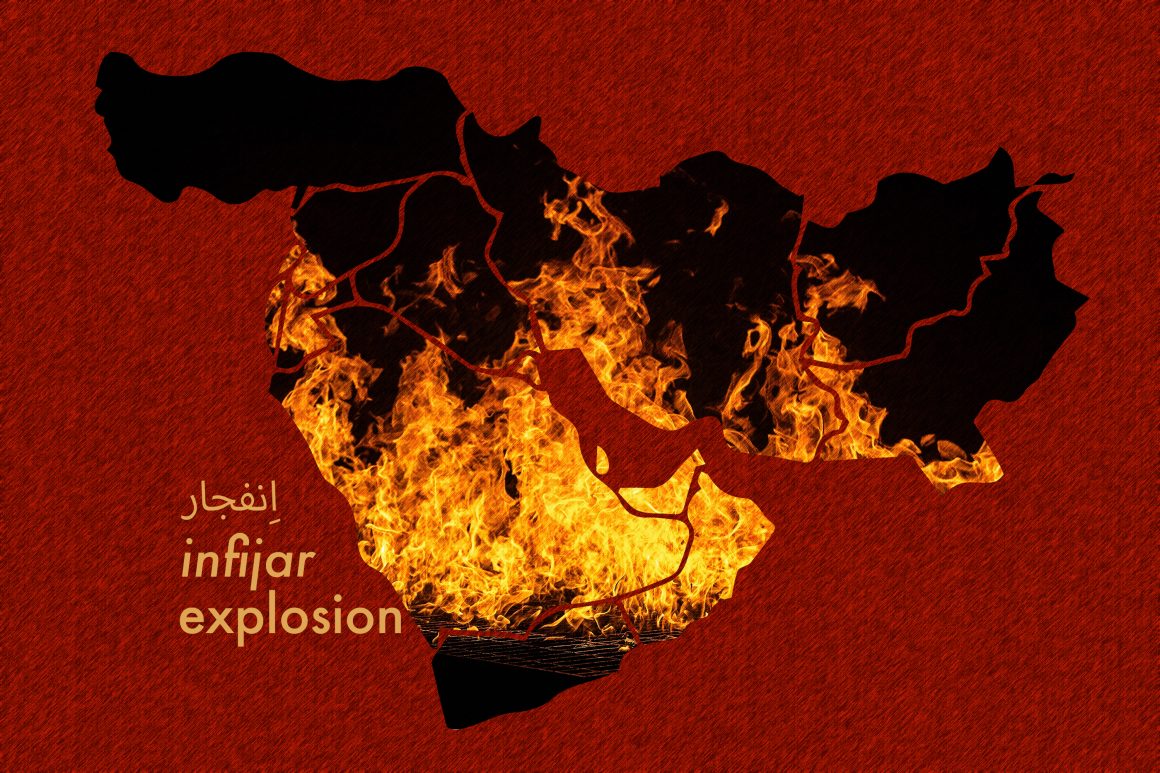
The sounds of massacre as an Arabic dialect
By Reyam Jamaleddine, January 8 2024—
Trigger Warning: Death, massacre, bombing, explosion
Growing up listening to the shrieks of massacred people helped to improve my Arabic.
A dialect that I can recognize, introduced me to new words of pleas and cries for help. In rotation, a different dialect of the Arabic language every time there is a massacre has increased my Arabic vocabulary. Through each nuance of the dialect, every massacre erases one of them, forcing a new dialect, one created from bombs and one that expels a forced monolith. There is no dialect for the word help.
I grew up watching AJ+ and Vice News. I was a child, yet for an odd reason, my main form of diversion was listening to the news of people whom I called my own being ridiculed and massacred. Listening to shrieks of terror in my mother tongue and the cries for help and desperation of people speaking a language I knew intimately was not something I was able to reject. I understood so well the cry of pain and misery of a mother who is using the same terminology my mother would use. My understanding of Arabic improved as I listened to the cries of the children. I would watch and see children who looked like me or my brother, murdered.
Arab children are always aware of the bombs. As far as my memory can reach, I and other Arab children knew of the bombs, the massacres and the rainfall of missiles. The Arab children knew, but it seemed the other children didn’t know. Maybe it was the distinction of the language, the Arabic language. As a child, I thought the sounds of the bombs I heard on television were a form of vocabulary within the language. The bombs never went off without the following shriek of familiarity.
The bomb was attached to us by the hip. It enters every conversation, every room, all of our safe spaces and all of our nightmares. The bombs haunt us, wherever on earth that the bomb exists, we know that the target will always be an Arab. Infijar — explosion in English. Infijar was always a familiar word, yet the word explosion was rarely heard.
The English language is a warm hearth that offers a safe haven. It is the language where my vocabulary is extensive and endless, the language where I never stumble over my words and speak without the requirement of thinking. It is the language that exists alongside my survival. It is the language of my self-defence and rhetoric, the language of my understanding and the language of some sort of opposition.
In a hopeful pursuit of Arabic to be my heart and the safe space for all Arabs across the globe. I bid farewell to my belief in the destructive demeanour of this language.
This article is a part of our Voices section and does not necessarily reflect the views of the Gauntlet editorial board.
